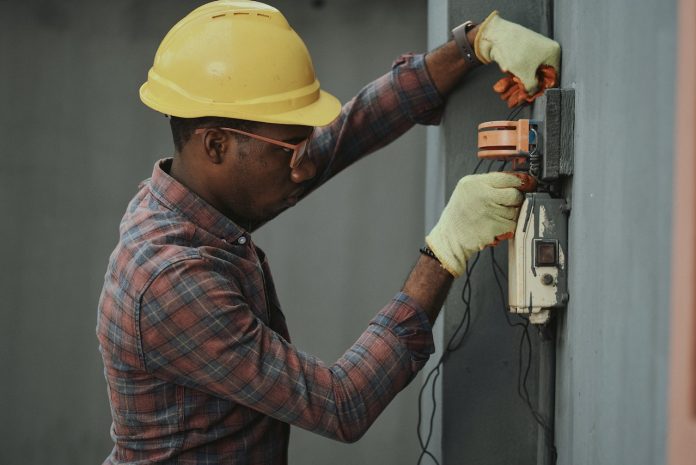Electrical safety should be a concern in every workplace and, fortunately, UK legislation reflects that.
In this article, we’ll explain what these laws are, why they’re needed, and how you can abide by them.
Why are electrical safety laws needed?
Electricity might be used throughout modern infrastructure on both a macro and micro scale, but that doesn’t mean that it isn’t dangerous. The truth is that electrical injuries can occur in a wide variety of circumstances and from both low and high voltages.
Many people are aware of the dangers of direct contact with live parts, which can lead to electric shock and severe burns.
These dangers become even more likely when electrical equipment or installations are faulty.
This isn’t all, however. In extreme cases, electricity can even ignite flammable vapours and dusts, cause explosions, and cause fires.
What are the electrical safety laws in the UK?
There are a number of laws and regulations relating to electrical safety in the workplace, including:
- The Electricity at Work Regulations 1989
These apply to all aspects of the use of electricity within the workplace, placing duties on employers, employees, and even the self-employed to prevent danger.
- Electrical Equipment (Safety) Regulations 1994
These requires protection against several risks of electrical accidents, including death or injury of humans and domesticated animals, as well as damage to property.
- Management of Health and Safety at Work Regulations 1999
These regulations require employers to put measures in place to control health and safety risks, including electrical installations and equipment.
How can you abide by electrical safety legislation?
There are a number of key ways you can make sure your workplace abides by the UK electrical safety legislation. In general, the first thing to do is make sure that you are familiar with all the relevant laws. Once you’re satisfied with this, take the following measures:
- Conduct risk assessments
To abide by the legislation in the UK, you need to make sure that you carry our risk assessments of the electrical hazards in your workplace.
Your assessments should include details of who is most vulnerable to the hazards, the level of risk involved, and the precautions you have taken to control that risk.
- Ensure proper usage
Moreover, you need to ensure that all electoral installation and equipment is not only suitable for its intended purpose but also only used for this purpose.
- Carry out repairs
You also need to make sure that all electrical equipment is kept in good working order. This includes inspecting, testing, and repairing electrical equipment. It also means replacing old, outdated, or overloaded equipment, with new and reliable equipment such as extension leads and cable reels from reliable suppliers like RS. Electrical equipment that is old or not maintained can have worn insulation, meaning the wiring connections can become loose, this is a fire hazard if they are continued to be used.
Compliance leads to safety
Ensuring electrical safety is an important part of managing a workplace, not only for the protection of employees but also to ensure compliance with the various UK regulations concerning this topic.
This might seem like a daunting task, yet by doing your research and following the advice above, you’ll be significantly closer to maintaining a more compliant and safer workplace.

